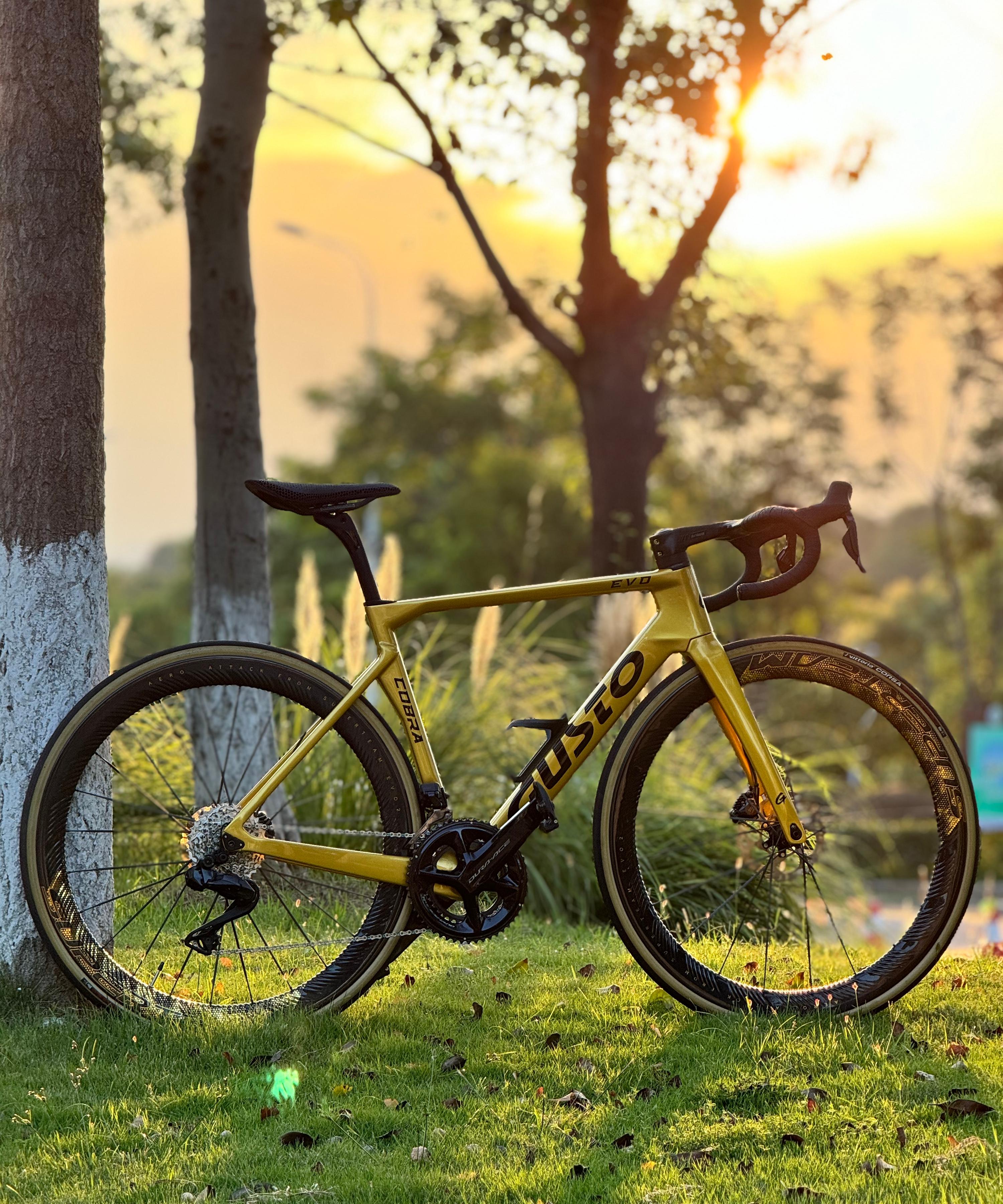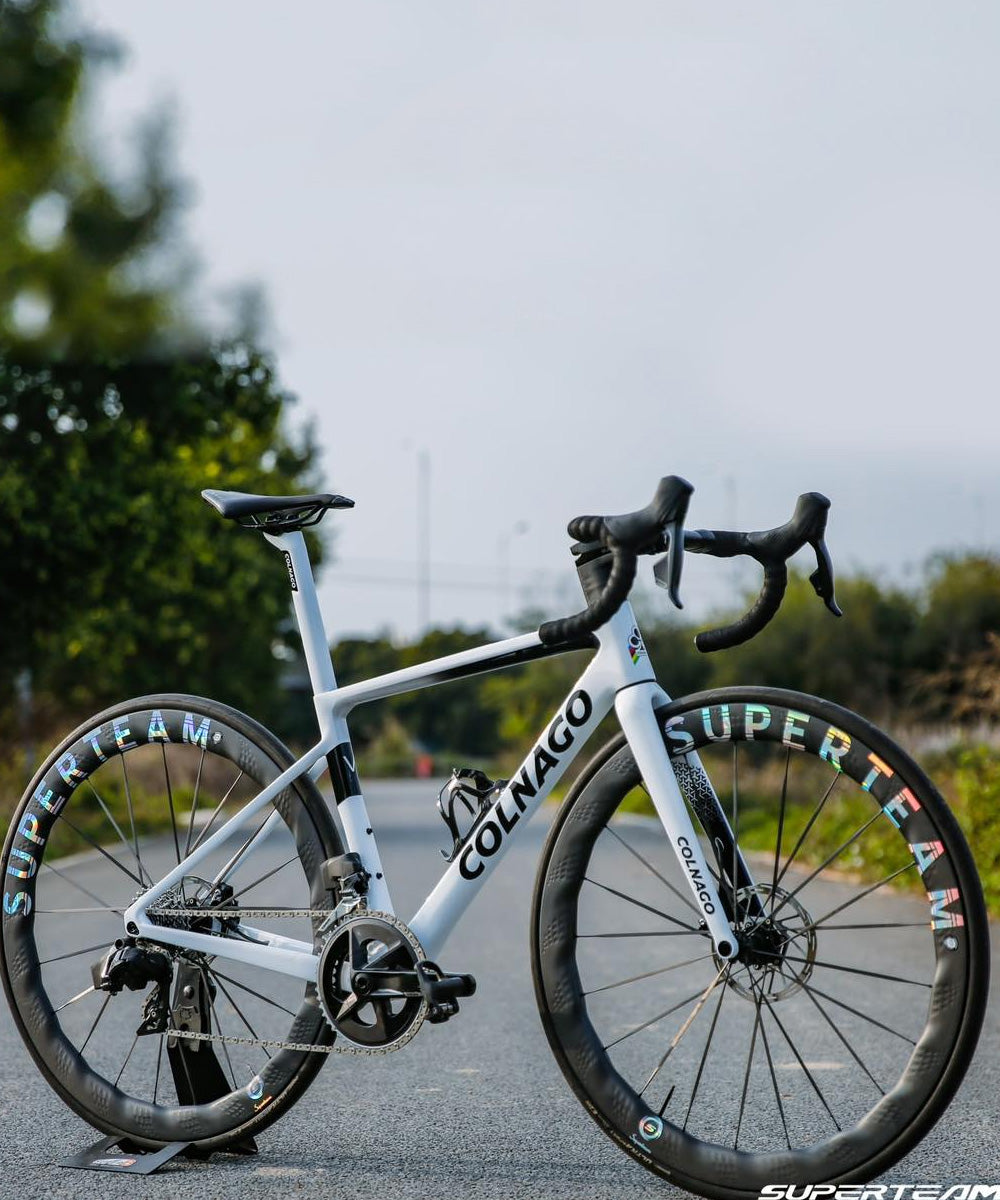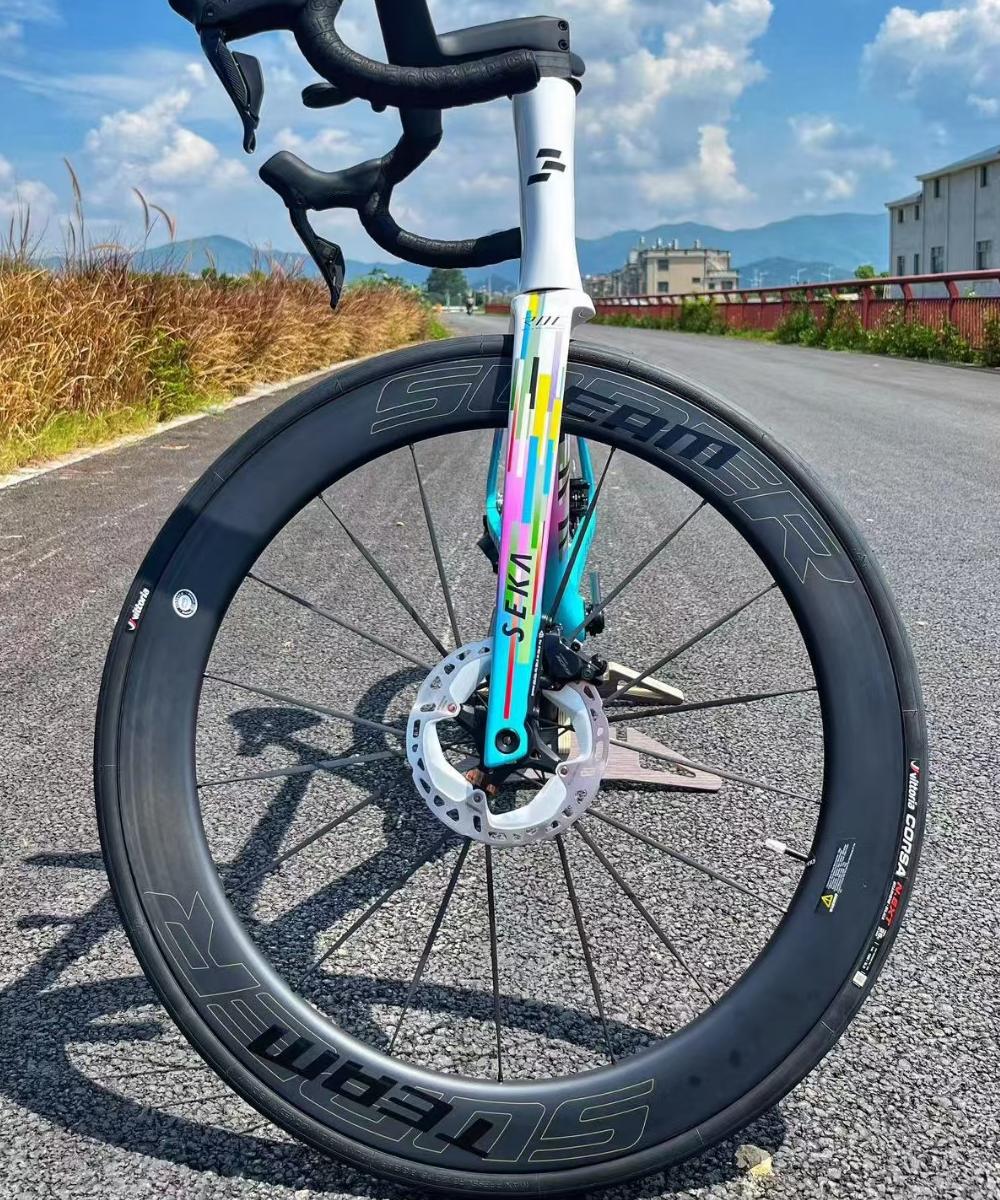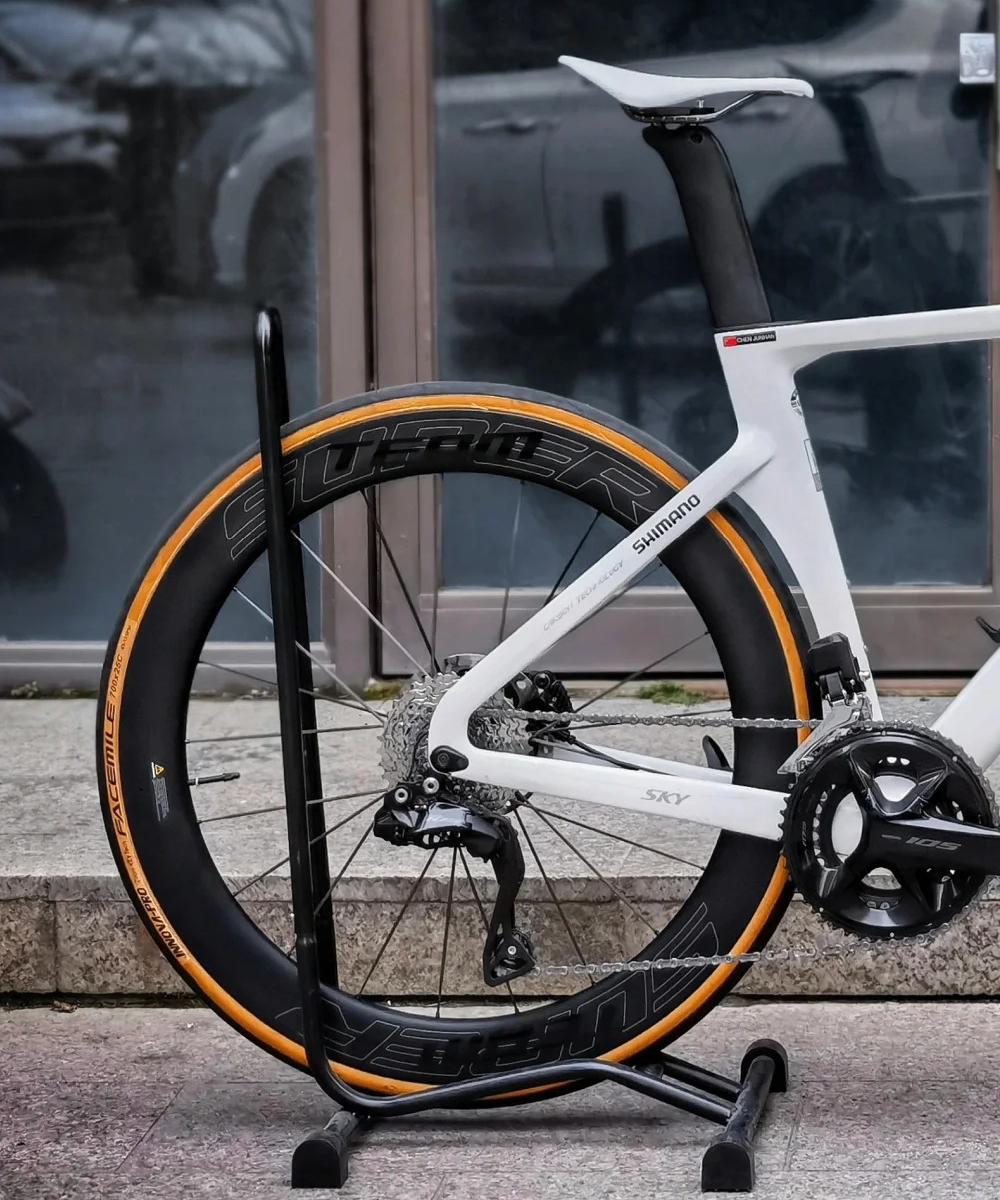Alloy vs. Carbon Gravel Wheelsets: Which One Should You Buy?
Gravel riding is booming, and with it comes one of the biggest choices you'll face when upgrading or buying a new wheelset: Should you go for alloy or carbon gravel wheels?
Both materials have distinct benefits and trade-offs. The right choice depends on your budget, riding style, and priorities on the trail or road. This guide will help you break it down.
Alloy Gravel Wheelsets: Pros and Cons
Pros of Alloy Gravel Wheels:
Affordable: Alloy wheels are generally much cheaper than carbon, making them a great entry-level or backup option.
Durable for Impact: Alloy rims can handle dings and knocks from rocks or potholes better without catastrophic failure.
Easier to Repair: Alloy rims can often be trued or repaired if they become misaligned, unlike cracked carbon.
Cons of Alloy Gravel Wheels:
Heavier: Alloy wheels typically weigh 300-500g more than their carbon counterparts.
Less Stiff: You may notice more flex under load, especially during hard cornering or steep climbs.
Lower Performance Ceiling: Less aerodynamic and slower to accelerate compared to carbon options.
Best for:
Budget-conscious riders
Casual gravel explorers
Riders tackling rough, unpredictable terrain where wheel strikes are common
Carbon Gravel Wheelsets: Pros and Cons
Pros of Carbon Gravel Wheels:
Lightweight: Faster acceleration and easier climbing due to reduced rotational weight.
Stiffer: Improved power transfer and handling precision.
More Aerodynamic: Deeper rim profiles provide aero advantages on fast gravel or mixed-surface rides.
More Responsive: Better feedback and a livelier ride feel.
Cons of Carbon Gravel Wheels:
More Expensive: Can cost 2-3 times more than alloy wheels.
Harder to Repair: If damaged, carbon wheels typically need to be replaced rather than repaired.
Potentially Harsher Ride: On rough gravel, overly stiff carbon rims may transmit more vibration if not properly matched with wider tires or lower pressures.
Best for:
Performance-focused gravel racers
Long-distance riders who want lightweight efficiency
Mixed-terrain riders looking to maximize speed and handling
Which Should You Choose?
|
Feature |
Alloy Gravel Wheels |
Carbon Gravel Wheels |
|
Price |
Affordable |
Expensive |
|
Weight |
Heavier |
Lighter |
|
Durability |
Impact-resistant |
Stiff but can crack |
|
Ride Feel |
Softer, more forgiving |
Stiffer, more direct |
|
Repairability |
Easier to true/repair |
Usually replace-only |
|
Performance |
Sufficient for most |
Race-ready |
Key Decision Factors:
Budget: If you’re starting out or building a secondary wheelset, alloy is more practical.
Riding Style: For aggressive racing or fast gravel, carbon gives a performance edge.
Terrain: On extremely rocky or technical trails, the resilience of alloy might be safer.
Comfort: Alloy tends to absorb more trail chatter, which can be a plus for all-day rides.
Superteam Gravel Wheelset Options
At Superteam, we offer both carbon and alloy gravel wheelsets carefully designed for different needs:
Superteam Carbon Gravel Wheelsets: Lightweight, responsive, aero-tuned for gravel racing.
Superteam Alloy Gravel Wheelsets: Tough, affordable, and perfect for rough and rugged adventures.
Our carbon rims use a balanced carbon layup to provide stiffness without compromising comfort—ideal for modern tubeless gravel tires.
Final Thoughts
There’s no universal answer—both alloy and carbon gravel wheels have their place.
Choose alloy if:
You’re on a budget.
You need maximum durability.
You’re riding rough, unpredictable gravel trails.
Choose carbon if:
You’re chasing speed, efficiency, and lighter climbing.
You’re racing or riding mixed surfaces at higher speeds.
You want precise handling and fast acceleration.
Ultimately, your riding style, local terrain, and long-term goals should guide your choice.




